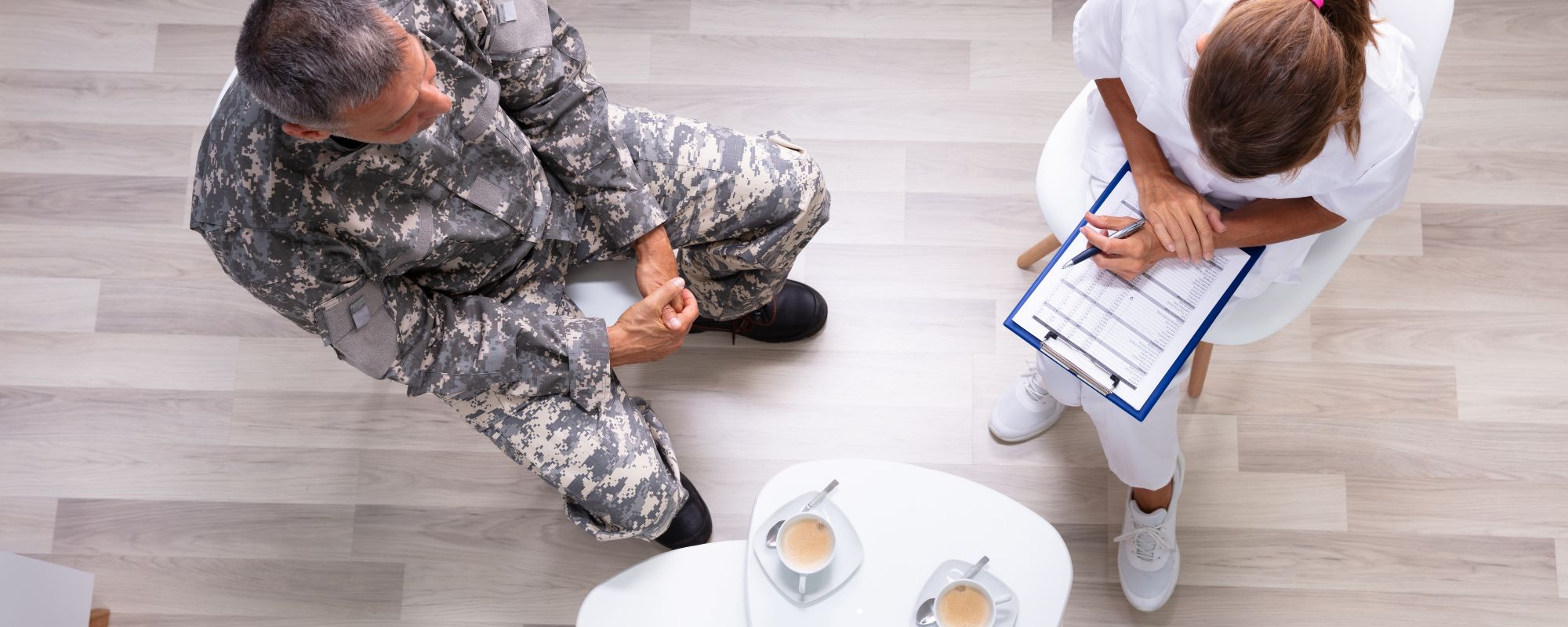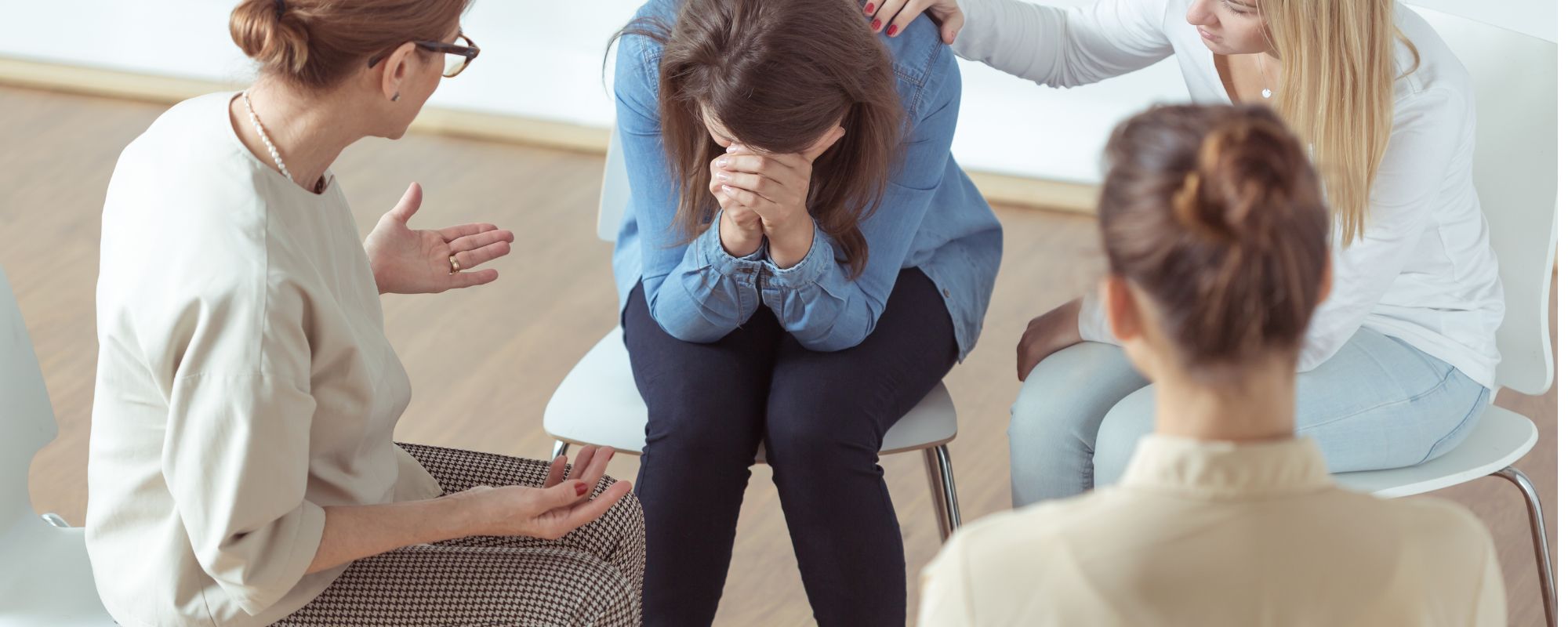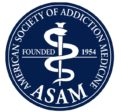A relapse prevention plan for substance abuse helps you combat cravings and maintain sobriety after graduating from a rehab program.
Substance use disorder (SUD) treatment introduces you to the building blocks of healthy living that help you create a sustainable recovery, free of drugs and alcohol. Group therapy sessions can help you create a relapse prevention plan to protect yourself from a potential relapse.
What Is a Relapse Prevention Plan?
In addiction treatment, a relapse prevention plan details strategies to reduce the risk of returning to drugs and alcohol during and after addiction treatment. A relapse prevention plan for substance abuse aims to identify high-risk situations and develop strategies to help you maintain sobriety.
The two main goals of a relapse prevention plan include:
- Preventing relapse and maintaining sobriety
- Developing harm reduction strategies in the case of a relapse
A relapse prevention plan helps you lower the risk of relapse by identifying triggers and maladaptive coping mechanisms. To strengthen your relapse prevention plan you also brainstorm ways to minimize exposure to risky situations that may trigger a relapse.
How To Make A Relapse Prevention Plan
Creating a relapse prevention plan is essential in the treatment of alcohol and drug addiction and recovery. As you build out your prevention plan, consider where you are in treatment. Where you stand physically and mentally can help you identify your unique needs, wants, and circumstances. As a result, you can set realistic boundaries and take preventative measures to protect yourself and your recovery. If you are currently in an addiction treatment program, your treatment team will guide this process and make sure you’re connected with the recovery resources you need.
Tips on building a relapse prevention plan:
- Set personal recovery goals.
- List your healthy coping skills.
- Identify potential relapse triggers.
- Know your warning signs.
- Define actions to take if triggered.
The best way to create a successful relapse prevention plan is to start by listing your recovery goals. This will help you stay on track and achieve your objectives. Think about the hopes and dreams you have for the future now that you’re in recovery. Then, create a running list of your personal recovery goals to help you focus on moving forward. After, jot down the healthy coping skills that benefit your healing and growth in recovery.
As you finish writing down your skills, start to identify your relapse triggers. Ask yourself, “Which of my skills will help lower my risk of relapse if I am facing this trigger?” Once you match a skill to a trigger, add it to your plan as a relapse prevention skill.
Relapse Prevention Skills
A successful relapse prevention plan will provide a thorough list of your triggers. Identifying each of your relapse triggers helps you get ahead of them. Once you are familiar with relapse risks, you can avoid them or practice healthy coping skills to minimize their impact. Whether you choose to avoid a trigger or face it with your new healthy coping skills, create your own list of relapse prevention skills.
Skills in a relapse prevention plan example can look like this:
- Avoid people and places who are negatively linked to substance abuse.
- Set healthy boundaries with others and yourself to avoid a build-up of stress.
- Be mindful of your environment and evaluate a situation’s potential for harm.
- Practice healthy coping skills if you encounter a triggering situation.
- Set regular check-ins with your sober support system.
- Engage in recurring activities that bring you joy and comfort.
- Participate in routine support meetings with others in recovery.
- Track your emotions and behaviors to avoid returning to past habits.
Relapse prevention plans can be written down or verbalized to your sober support system, so they can help you stay accountable in recovery. Also, sharing your relapse prevention plan with others encourages healthy discussions on how you can minimize exposure to triggers.
In treatment for addiction, relapse prevention groups help you create a list of healthy coping skills. Then, the group collaborates to identify alternative actions to take if alcohol or drug cravings threaten sobriety.
Relapse Prevention Groups in Addiction Treatment
A fundamental goal of treatment is to provide you with the necessary skills and mentality to maintain sobriety. To accomplish this, comprehensive treatment programs for substance abuse provide relapse prevention groups at every level of care. These groups cover techniques, tools, and resources to help you avoid relapse during and after rehab.
During relapse prevention groups, counselors ask thought-provoking questions to help you identify your triggers. Relapse triggers can be related to people, places, things, and behaviors that may pose a risk to your recovery.
How To Identify Relapse Triggers in Treatment
The best way to tailor your relapse prevention plan to your recovery is to think about returning home after treatment. As you imagine future encounters, observe your reactions and note whether or not the idea triggers a fear response. This helps you identify potential relapse triggers so that you can protect yourself if your recovery is at risk.
Group discussions on relapse triggers include:
- Stressful situations
- Negative or overwhelming emotions
- Reminders of substance abuse
- Connections to the addictive behavior
- Holidays and/or celebrations
In general, it’s important to make sure you’re surrounded by supportive people when processing triggers. Knowing that the topic of triggers can be upsetting, relapse prevention groups are a wonderful resource. As you work through stressful topics in group therapy, empathy and support go a long way in recovery.
Sharing your fears with others in treatment can be incredibly cathartic. Encouragement from peers can also help bring you back to the present moment if you get overwhelmed or discouraged.
As you participate in group sessions, you learn problem-solving techniques with the help of your peers. These skills are useful if you are confronted with relapse triggers. As you practice problem-solving skills to limit your exposure to triggers, you strengthen your recovery resolve in treatment and beyond.
Preventing a Relapse in Recovery
After you graduate from an inpatient treatment program for substance abuse, you will begin the transition into a less restrictive setting. Whether you choose to return home or join a sober community, your new living arrangement will offer you more freedom.
In either case, you will begin reintegrating back into your community to tend to your responsibilities. While this big step is exciting, it often brings potential triggers that run the risk of relapse.
While stress is unavoidable, residential inpatient programs teach you the skills you need to succeed in life after treatment. Your new coping skills and techniques give you the knowledge and strength to face your fears. Moreover, you can lean on your support systems as you continue to forge your path to a life in recovery.
Outpatient Treatment for Relapse Prevention
You can also minimize the chances of relapse by continuing treatment in outpatient programs (OP). As the least restrictive treatment option, outpatient treatment is a continuation of care following an intensive outpatient program (IOP). In OP, you participate in accountability measures, utilize treatment resources, and have regular access to a sober support system. If you’re looking for support to safeguard your sobriety as you reenter society, outpatient programs also offer individual and group therapies that fit your schedule.
Reach Out
Relapse prevention planning is just one way we support our guests’ success in recovery within our treatment services. To learn more about our recovery programs and how Royal Life Centers can be a part of your recovery, please reach out to our admissions team, available 24/7 at (877)-RECOVERY.












